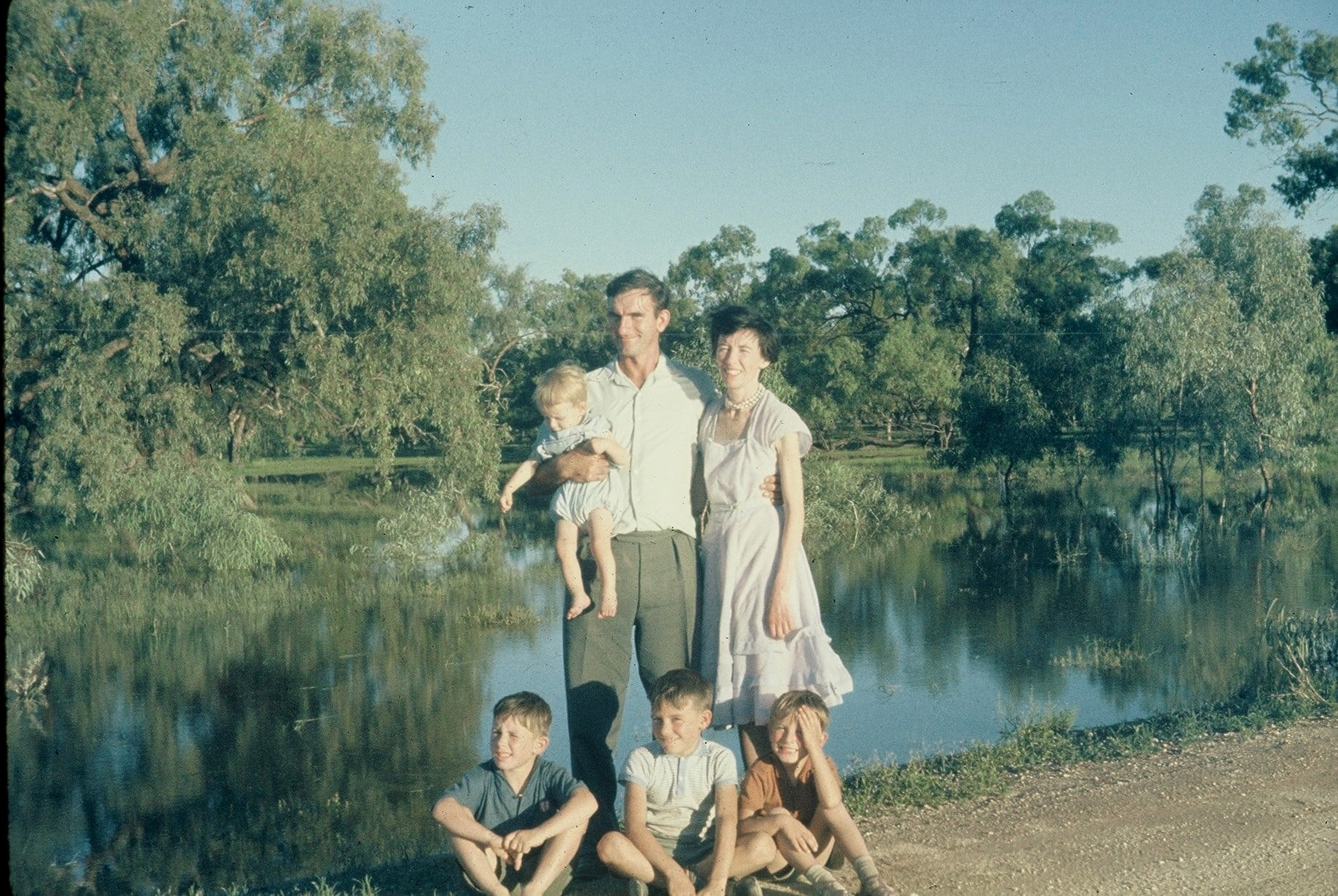The Shed and The Thread
Tonight, in my lounge room: the waft of lanoline, the rumble of my wife's spinning wheel and the texture of soft merino has summoned me back to a boyhood world of other wheels. A shearing shed wrapped in corrugated iron with a diesel engine, a sandpaper emery wheel, down shafts and hand-pieces: all chattering a concerto of steel. Such honest steel. You know something's happening when that engine roars to life and the sparks fly. The dogs bark and sheep scrabble across a greasy floor. This thing roars so loud you have to shout to be heard: good shouting, mostly anyway; except when the contractor loses it. F words flow and we laugh. Sometimes she seems to sway like a great ship easing out to sea: no looking back. At least not until smoko when we feast on mutton sandwiches with cheese, mint sauce and pepper. Me? I missed the boat today. The shed has been roaring for a good hour and I'm marooned here at the house: the late out of bed nine-year-old boy, wandering around rumpled shearer's cots, cigarette packets and empty longneck beer bottles. These men are so lucky. More hard work than they know what to do with. Lots of money. Muscles almost as big as my dad's. Trucks to drive, red dust, dogs, guns and laughter. And they get to smoke and drink. And just to make it interesting, they take these mysterious powders called Bex and Vincent's. Those powders look so good when they shake ‘em down the throat. I wish I could try one. But it's just used longnecks on offer today. And here's one right in front of me with a little of that never-before-tasted beer in the bottom. No one's watching. It's now or never. Tip her up to the lips and… ‘Blaugh!' Too late she's gone down the chute. Close, but no cigar. Thankfully, I realise years later. I have other things to do here: gardening, dishes, cleaning. Helping Mum. She might need her hair brushed. She might have something she wants to tell me. She might pray. She's my secret and I'm hers. I can tell. It's like she's spinning a mysterious kind of thread—the most expensive kind: woven in her secret place of dread where none of us have ever been, nor ever wish to go, or even think about. It's my turn with her, now. I walk to the other side of the house where she sits in her blue and white dress. Taking a plastic cup from the table, I tip it to her lips and help her drink this milky tea she so loves. I'm not to know this, but she will have left this world before three years are out. She will also—one day—be a grandmother to my seven children and great-grandmother to theirs. My children (and the children of others) will visit her grave and feel the help of her invisible thread.1 Back in my adult writer's lounge it's a crisp, cold night. We have our wood fire, our books and a fleece becoming a thread through the fingers of another lady. Meanwhile, all around us, the better part of the wool-shed smell—and that world of other wheels. Too late now. I'm gone again! That other world has pirouetted into my living room and touched another kind of magic here at my elbow. A great fat book that's arrived from the post office: English Literature in The Sixteenth Century—Excluding Drama by CS Lewis. And what do I find in his introduction? Wheels again! And in talking about these other great wheels: the slow dance of the planets; Lewis reminds us that our world is mistaken when it supposes that Copernicus' model of the universe (in the 16th century)—which had the sun, rather than the earth at the centre of the universe—was a scandal. It was in fact a delight, a relief to the medieval. Lewis goes on to say, ‘…for ages men had known that the earth was infinitesimally small—to be treated, said Ptolemy, as a mathematical point… Nor was it thought that the Earth would lose dignity by being moved from the cosmic centre…' One great man of faith, rejoiced to find that ‘She had movement, she also is a noble star with her own light, heat and influence.'2 For the medieval mind, Lewis tells us, Earth was regarded as being on the outer, ‘the point at which all the light and heat died out…'3 In his book The Discarded Image Lewis adds that when the medieval person went out under the night sky it was as one who was looking in on ‘the revelry of insatiable love.' Then we come to these words… ‘The bold use of mathematics… delivered Nature into our hands… Man with his new powers became rich like Midas but all that he touched had gone dead and cold.'4 So, we have this nine year old boy—tonight—his back to his mother, staring longingly at the shed with all its wonders of steel and things to do: a shed that has fallen silent. But the boy still holds that secret thread woven in his mother's heart and is feeling his way home. 1 George MacDonald: The Princess and The Goblin 2 CS Lewis: English Literature in The Sixteenth Century—Excluding Drama. Oxford, England, Clarendon Press (Volume III of The Oxford History of English Literature 1954) p 2 3 ibid p 3 4 ibid p 4








